Antoine Fuqua interview: The Equalizer 2 and being an R-rated director in Hollywood
The director of The Equalizer 2 tells us about the challenges he’s faced across his career, and the unswerving cool of Chow Yun-Fat...
The Equalizer 2 marks the first sequel to be made by both its star, Denzel Washington and his long-time collaborator and director, Antoine Fuqua. Having first worked together on the fantastic Training Day in 2001, they’ve been reunited once again to bring Robert McCall back to the big screen, following his one man crusade to right wrongs and break more than a few faces along the way.
As a fan of Fuqua’s work since his feature debut, The Replacement Killers, it was a pleasure to sit down with a man who continues to pursue a career making R-rated movies, at a time when Hollywood has become even more fixated with franchises and financial stability than ever, to talk about that and his unflinching filmmaking, that is as bold as it is divisive. Our interview found him on fine form, full of enthusiasm for his craft, his leading man and the joy of overcoming challenging shoots, as we sat down I commented that it must be nice to be promoting the film in the UK, knowing it had already been a success in America and the conversation went from there…
Antoine Fuqua: Yeah, we’ve done well and they say we got the number one weekend, which people make a big deal about – it’s almost like your movie lives or dies on a few days. It’s not exactly ideal, but it’s the business. Show-business!
You’re seemingly one of the few directors still making R-rated movies, which I’ve always appreciated. Do you feel like part of an endangered species?
Yeah I’m starting to! Because I love movies, I love what movies are and used to be and it seems that we’re letting… understand it’s a business, so you’re letting the money drive the business and I’m not sure that’s always good, because greed always leads to something negative and movies can suffer from it. Where (it’s a case that) we can all “Make a lot of money!” and the audience loses faith in you and start finding alternative things to do on the weekend. So I think that, in a way, we are in an industry that – and I love the industry and I love the movies, but I find that we limit ourselves and I don’t know why we’re the only business that does this, where you take away tools and you take away options.
For example, we lost film – there’s no reason to lose film. It’s another paint brush to create what we do. Why not use film, use digital, use whatever captures the image and tells a story, it becomes a thing of money always and I think that we throw things out and we do that at times with actors, that are amazing actors and then ‘oh they get a little older’ and then all of sudden you don’t see them much and you just wonder why. Not so much in Europe, it still seems like actors are actors and then in Hollywood it becomes you’re either a movie star, or not and if you don’t have a movie star it’s hard to get your movie made. And yet there are some amazing actors that at one time were ‘movie stars’ whatever that word means.
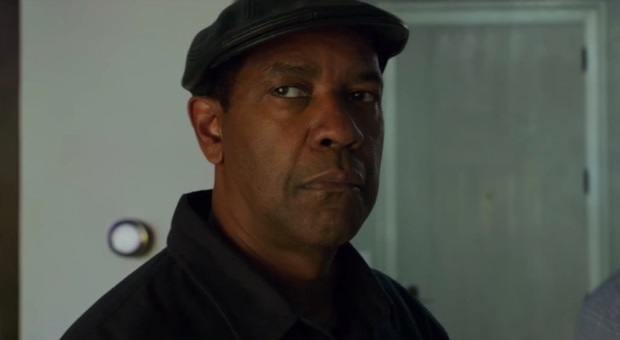
I’ve always thought that as some of my favourite actors; they maybe had a couple of hits in the eighties and not much since, but to me, they’re still as important as they ever were.
Absolutely, but still great actors.
Yeah exactly, it’s never changed anything.
It’s just that ok, they had a couple of them that after that didn’t do as well and you never know when a movie doesn’t do well – you can’t always pinpoint why, it could be where people are at the time, they didn’t want to see that kind of movie, or what’s happening in the world. Movies are magic, you never know when it’s going to catch fire.
And I always think that with Westerns, because I’m a big fan of the genre.
Me too.
It’s such a strange thing because it’s never quite been able to recapture the success that it deserves and that it used to have back in the day.
Right? And I don’t know why, but can’t because we threw it out and we don’t give it a chance. You’ve got to give it a chance and give it a chance to tell some good stories – maybe they’ll go see it. True Grit makes money, so boom there you go. Mag 7 did fine, it made money, MGM’s not upset – they did fine, Sony did fine. Yeah, when you put Chris Pratt and Denzel and all those guys in it, there’s a tendency to say “oh it’s got to make a billion dollars” for it to be successful. I mean, come on, the movie did fine, everybody made money.
The greed is “We wanted more money! We felt like we should’ve earned more money” it’s like, really? And for that to happen, you’ve got to sometimes give your audience different variations on that, so that they can see and appreciate what a Western is. Remember, we’ve got a whole generation that hasn’t seen them. It takes them a minute to get caught up to what that is and get comfortable with that world and even for filmmakers to figure what the rhythm might be now with the Western genre, as opposed to back then, to try and help it come into a modern day era. We feel like, “Oh it’s dusty and there’s horses, so it’s not cool” [pulls and exasperated face] …What? I don’t understand it. Maybe it’s just me!
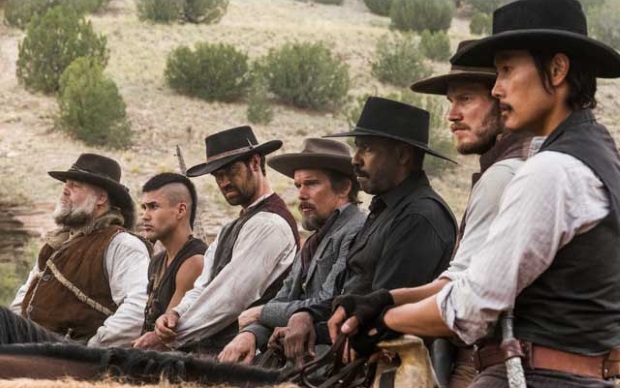
One of the things I love about the Equalizer films is that they have the intrinsic values of a Western…
It’s a Western. Yeah, think about it, in Leone’s movies Clint Eastwood rides into town, he was a bad guy in his day, or he’s done some bad things you can tell and then he goes to a bar and all of a sudden you see a guy slap a woman and he then goes to slap her again and then off camera you see a hand grab him and the guy turns around and Clint Eastwood slaps the guy down and he’s still got the cigar in his mouth, half chewed up! It’s like yeah, there he is, equalizing the situation. So Magnificent Seven, the original one, was that as well; equalizing a situation, same with Seven Samurai. So I’ve always seen this as like, more of a seventies style film in its way and more of a Western in a way and the ending of the movie is sort of like High Noon: going out of town, all alone, the bad guys are there coming to get him. It all goes back to that.
When it comes to your filmmaking, the thing that I love is that you don’t make things easy for yourself, because you’re already trying to make an R-rated movie and then presumably you get the script for The Equalizer 2 and you’re like “So it says there’s a big storm at the end, right?”!
[Laughing] Oh you don’t even know how many times I stood there in that cold weather and thought ‘Oh it sounded good on the page, man!’ Yeah I don’t make it easy on myself. When I did Mag 7, I was standing there and it was 110 one day. The horses were just not listening to any of us, no matter what we did, they would run to the shade. You could get a guy on a horse who’s an expert and the horse would just take him to the shade and the guy would be like “He’s bigger than me, what do you want me to do?!” [laughs]
Then some days there would be lightning and I’d get a great shot going and just get my rhythm going and my AD’d come up to me saying “We’ve got to shut it down” and I’m saying “It’s beautiful! Look at the sky! What are you talking about?” and the AD says “Six miles out there’s lightning” and I’m like, “There’s no lightning!” [makes a lightning hits sound] Lightning! It floods the whole done and we’ve got to redo the whole thing. Craziness. But yet, when I go back in and when I watch it on the big screen it’s like, it’s great, it was worth it. Now, when I go back and look at the films, like really epic films like Lawrence Of Arabia, or Apocalypse Now or any Western, I have a new-found respect for filming in the elements. Whenever you’re filming in the elements, an outdoor adventure, you’re asking for some things that you can’t control.
Quite, like today – it’s been a heatwave for months and now it’s torrential rain!
You can’t control it! [Laughing] I’m sure that there’s somebody out there filming somewhere and they’re like “What!? There’s someone out there sitting in their trailer, with their head down going “Is it ever going to stop!”
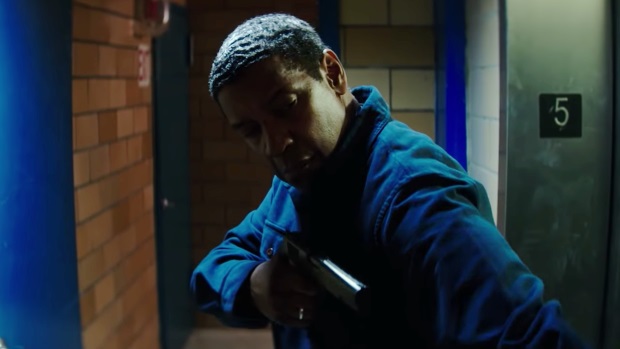
And for you, was the climatic face-off more of a challenge than say, the car fight, where you’ve then got the logistics of close quarter combat in a small space?
They both have different challenges in their own right. Taking over streets is hard, people don’t want film crews where you’re messing up people’s traffic, you’ve got to get the police to help you with all that stuff and people calling you “Assholes!” and stuff like “Hollywood’s in town!”
The glamour’s all gone!
[Laughs] Yeah and they’re all like ‘You’re causing traffic jams at five o’clock!’ and you’re sitting their trying to getting things done.[Exhales] And then logistically that stuff is tricky, because I like to film on location and really make it as ‘real’ as you can in the movie sense and I get my great stunt guys and we’re always trying to push the envelope without getting anyone hurt – with the cars coming close and really banging and doing that stuff, again like they used to do with Bullitt and all those films. Again, I don’t make my life easy and it’s logistically hard, but so worth it because then I become a kid again – when I see the shot work, I get excited, but then I’ve got to stop and then set up again for the next shot, that takes forever and then I finally get excited again! And If it doesn’t work, I’m pissed off because now I’ve got to set everything back up again and hopefully when he crashes the car, I’ve got another one hopefully in the budget, or I’ve just got to crash it and deal with it later! [laughs]
And then the storm is the storm. It was wet, it was nasty, there were waves crashing and for the actors it was really uncomfortable, for Denzel and those guys. For me it was just logistically difficult, because you only have a certain amount of time early morning just before the crack of dawn, before the sun comes out, even on cloudy days, at some point the sun comes out around high noon, you have to shut down, go do something else. You’ve got to literally shift all your attention into a whole other scene, so your brain is now shifting as director. Then the sun goes down and your back to all the waves crashing and all the kind of stuff going on before we lose it and it gets too dark and you’ve got your giant weather fans and jet engines and it takes a while to move those things and then not be in your shot. It’s so funny when I look at the behind-the-scenes pictures and see how ridiculous we all look standing out there! [laughs] And I’m out there doing my thing with the whole giant crew and it’s just ridiculous and then you see it on camera when it happens and then [makes a puff of smoke sound], it’s magic. You fall in love again.
For scenes like that, do you use a lot of pre-visualisation?
Yeah, scenes like that, or car sequences, I really board them and my storyboard artist is Jim Magdaleno –we’ve been working together from the beginning – so we spend weekends, I mean long hours, so Jim will be working during the day when I’m prepping all kinds of other stuff and then at the end of the day I get with him and we’re sitting there until deep into the night, doing that, laying it out and we take those and we animate them and we move them around and we look at it, you know especially nowadays, with the technology and trying to find what that is and how to get that certain shot.
Then it all falls apart when you get on set! [laughs]
It’s like the best laid plans!
You know it’s always that! You find out that certain piece of equipment didn’t quite work, or that camera angle with that lens from that angle has complications and for some reasons we missed that. Or water keeps getting all over the lens, or gets inside – all kinds of craziness, but creatively you look at that and I’m like “Nah that looks fucking great” the water is all over the lens and its getting foggy like that one scene, I was like “Yeah, leave that!” because I love it. So within the craziness and the mess, comes creativity. if you’re alert and you’re aware and you’re in the moment to see it.
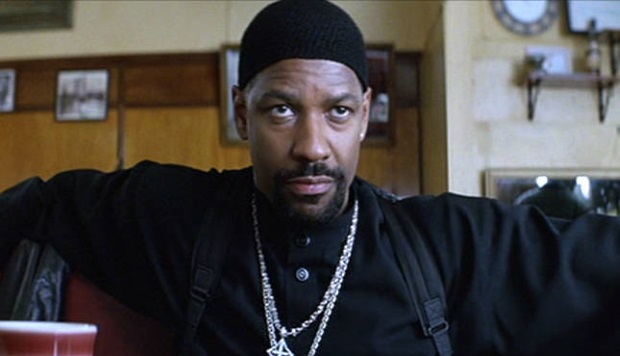
If you think back to the first day of working with Denzel Washington on Training Day, to now, has your working relationship changed?
It’s the same, because when we worked together on Training Day, we became friends and we respect and trust each other and then one day, the first scene in Training Day in the diner, I remember filming that scene and we’re about to move on from the diner to outside in the car and all that stuff. So out of respect, I said “Denzel, you wanna come to the monitor so you can see that last take?” because at the end of the scene, he asks “Got it?” and I say “I’m good, I got it” and he said “Okay” and then I ask him “You wanna come take a look at the monitor” and he said “No man, you’re the pilot, you’re flying this thing man, call me when you need me” and he just walked away from me. So I’m standing like, I can’t screw this up, I’m responsible now! [laughs] But that confidence and that belief in me has been the same, he’s never come over to my monitor and said “What are we shooting, what is that?” He’s come over and asked me – only on Mag 7 for the first time “What lens is that?” and we talked about it, because he was about to go and direct Fences and he had his book, he would write down some stuff, he would do it with me and with Spielberg and Spike, but we all have our people we do that with, but it’s been amazing.
I always think as well, it’s fantastic because I grew up with film makers that used the same actors a lot – if you take someone like James Cameron who had his crew with Paxton and Biehn for example, I always loved watching them work together.
It’s a great relationship, because they’re your friends. Kurosawa had that same relationship, Scorsese has it with De Niro. It’s great because you’re working with your friend, you understand each other and you kind of get a sense of what will matter to them, or not. As a director, they’re like a muse for you, because creatively they challenge you, but also they bring a lot to the table so as a director, you’re going to do all your creative preparing and dreaming and then your dream will match with their dream and then they may up your dream, because they may want to do something else that you might not have thought about, because they see it as the person playing a role.
We’re seeing it almost as a voyeur and we’re trying to feel it, but they’re in the moment. So all of a sudden, (in The Equalizer 2) Denzel’s there in the moment with the kid, Ashton (Sanders) in the projects and he grabs him and he does that thing and he’s in his face like that and you’re just like “Woah”. I’m looking at my camera making sure ‘you’re in focus right?’ [laughs]
Or like in Training Day in the scene where he says “KING KONG AIN’T GOT SHIT ON ME!” – that was happening, he was in the zone man, he was just going. That wasn’t written and he came over to me afterwards and he was exhausted and I remember his face and he sat down and said, “I hope you got that, because I don’t know where that came from, I can’t do that again!” I was like, “Yeah I got it”. And it’s a little soft, if you look at that shot because it’s anamorphic there’s a little buzz in there and I remember being with my editor being so disappointed with the buzz and he said “Antoine, nobody will ever notice it, ever.”
But that’s what I mean when you have somebody you can work together with that way and I’ll come up with ideas that are offbeat, like in Equalizer 2, the writer had written that he was at the computer and I was going through the script thinking ‘I’ve got a computer scene again, I’ve got Denzel Washington man, I don’t want to see him at a computer again, I want to see him working the scene out like theatre, I want to get in his brain. So I said to Denzel “I want to see you move around, move chairs around, physically do it and sit down and then put you in the room and see you imagining being there.” Because he’s a great actor and there’s all these little things on his face – there was one shot where he’s just staring right into the lens and then we cut to the silhouetted figures walking into the room, the killers and that was fun for me because I knew I had Denzel Washington to do that with, why have him just sat at a computer, I’m misusing that time!
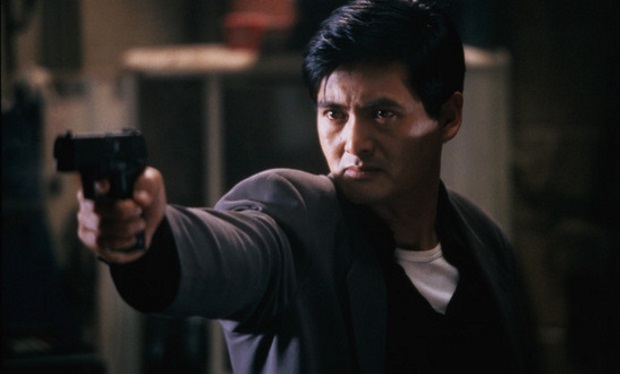
Your first feature was The Replacement Killers, which is a film I love – I even had it on laserdisc.
Oh yeah? Me too! [chuckles]
What’s the first positive memory of that experience that comes back to you?
Chow Yun-Fat, the coolest guy in the world.
Yeah, because you were the first person to direct him in an American movie…
Yeah to introduce him to America. I sat in the trailer with Chow Yun-Fat and that was a tough shoot because I was new, learning the movie business. As a director you grow up – I’m sure you did as well – watching movies and reading about how directors like Scorsese were making independent movies in the seventies, where they had full control of the material and you dream that you’re going to make a movie and that you’re the director and you’ll have full control (and the reality is) well not really. I’m the director, I’m new, right? I’m lucky they trusted me at all! On a studio movie by the way and it was tough some days, as you learn – the learning curve is your first film.
And I was sat in the room with Chow and he was always just the smoothest guy and he’d have his hot water with lemon. I would sit in the trailer with him and I said “Man, how are you so cool all the time?” even with things he wanted to do, that they wouldn’t let him do, because he was working within the Hollywood system now, not independent like in China, things that you can’t get away with in the United States. And he said, “Well Antoine, I’ve been through a lot of things in my life and I’m just really comfortable with being me. I don’t need to turn into somebody different and act like the big movie star. I’m comfortable being me.” And that was it.
I remember looking at him thinking, ‘I understand that, I get that.’ He wasn’t going to pretend to be something he wasn’t, he wasn’t going to pound his chest and do all these crazy things to get his way; that’s not his way. His way is very calm and accommodating and he gets his way when he needs to, but he wasn’t coming to Hollywood to pretend to be anything different to just the really quiet gentleman that he is and that was an important lesson for me, because it was just be yourself. He was just smooth, man. I love Chow Yun-Fat, he’s a good man.
Antoine Fuqua, thank you very much!
The Equalizer 2 is in UK cinemas from 17th August.